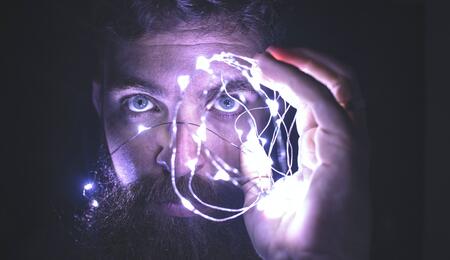Can Cannabis Make You Susceptible to False Memories?

Whether you are veteran pothead or a newbie in the circle, you've undoubtedly heard overwhelmingly weird stoner tales ranging from playing poker with penguins to being attacked by samurai. And while a sober head and a common-sense would generally lead you to dismiss these wild stories as rubbish instantly, science says there is probably scientific merit to this.
According to a recent study, cannabis users are more likely to create "false memories" - a state in which they mistakenly remember information that never happened in reality. The research led by Lilian Kloft of the Faculty of Psychology and Neuroscience at Maastricht University, in the Netherlands, discovered that cannabis might have a somewhat fictitious effect on our memories. We already know that cannabis can slightly impair memory, but the study published in the journal Proceedings of the National Academy of Science suggests that pot also has the ability to tweak the perception of reality and lead to creating "false or fake memories."
These fake memories can vary from mundane fabrications such as believing that you left the keys on the table to major delusions such as believing that you were in a car accident. Memory formation is a progressive process, and therefore it can be a subject to distortion. From a legal point of view, these altered memories can especially be tricky when it comes to testimonies given by crime scene eyewitnesses. "The law has recognized that certain witnesses are vulnerable, so you need to take extra care" when questioning them, study co-author Elizabeth Loftus and a distinguished professor of psychological science and law at the University of California Irvine School of Law told Live Science. Like children or people with mental disabilities, who are considered "vulnerable" witnesses, "maybe cannabis-intoxicated witnesses should join that club," Loftus said. To find the link between cannabis and false memories, the researchers recruited 64 volunteers for a series of tests and experiments. The participants - occasional pot users - were given a vaporizer with either marijuana or a hemp placebo and partook in three assignments designed to induce false memories.
The first task included visual lists in which the volunteers were asked to memorize words and then to pick out those words from the test lists that included dummy words. Both stoned and placebo participants falsely remembered some of the dummy words. But, while the sober group chose words that were linked with the original lists, the 'high' participants selected less-related and unrelated words. In the next tasks, researchers developed two virtual reality crime scenarios, where in one the participants were eyewitnesses and in the second perpetrators with half the group doing it high, while the other doing it sober. In the first scenario, volunteers observed a fight on a train platform, after which a virtual co-witness falsely recounted the incident describing it with several errors, including recalling a police dog that wasn't part of the altercation. In the "perpetrator scenario," participants were instructed to commit a crime themselves and steal a purse in a crowded bar. After the simulations, both groups were asked leading and non-leading questions, with intentionally added misinformation to confuse them, like claiming that a gun was used in a scenario where the robber used a knife.
While both groups answered questions with similar accuracy, when asked about details that never appeared in the VR crime simulations, stoned participants appeared to show higher rates of fake memory for both scenarios compared with the placebo group. “People under the influence of cannabis show the highest risk for false memories for things or details that are poorly related to the original event," Kloft said. "It appears that [cannabis-intoxicated people] have a 'yes' bias when they are uncertain about their memory, which makes them sort of random and unreliable responders." Apart from developing false memories, the stoned participants were also reacting differently in these simulations. Some volunteers laughed and interacted with the virtual characters, while others became paranoid and needed assistance to steal the purse. One person has even been reported running away so quickly that they ripped out the whole VR setup and it fell to the ground. The researchers interviewed participants the following week to see how they would recollect both scenarios once they sober up and found out there was no difference between the stoned and sober group in the memory span.
This shows that memory can decay over time. "Memory decays, initially, very quickly. It declines steeply in the first 24 hours," Annelies Vredeveldt, an associate professor in the Department of Criminal Law and Criminology at Vrije Universiteit Amsterdam and co-founder of the Amsterdam Laboratory for Legal Psychology told Live Science. "Probably it would be best if [cannabis-intoxicated people] were interviewed as soon as they sober up, or maybe one day after the event," Vredeveldt said. The more time that passes, however, the more their memory will deteriorate, she added.



